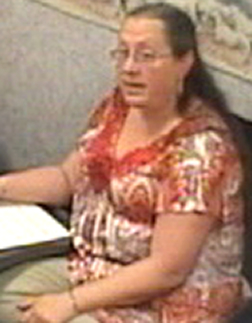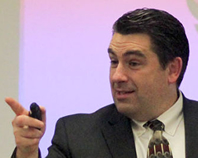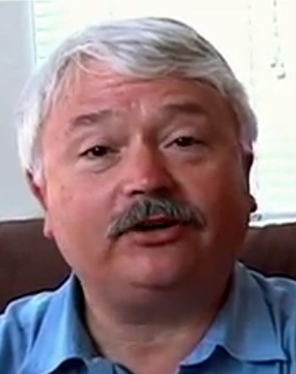After Being Acquitted, Father Files Lawsuit
By Joseph Snook
Investigative Reporter

Albany, Oregon – Dain Sansome, through his attorney James Leuenberger, is preparing to file a civil lawsuit against the City of Albany, Linn County, Benton County, and the Oregon State Department of Human Services (DHS). According to reputable sources, the suit stems from Dain Sansome’s false arrest, and him being, “falsely prosecuted.” Although Sansome was acquitted, the troubles continue for himself, and his family.
The lawsuit is reported to claim that Sansome and his family had their civil rights violated, and gross error was made by Detective Glenn Fairall of the Albany Police Department, who was instrumental in bringing false child sex abuse charges against Dain Sansome. Despite being found innocent by a jury on December 12, 2013, Dain and his family are still suffering from the immense emotional distress they were forced to endure for over two years, which according to Dain, “the effects of my false arrest and malicious prosecution continue to this day.” A close examination of the record in this case proves that the Sansome’s pain and suffering is a direct result of Fairall’s cunning lies and incompetence.
Detective Fairall, who “investigates” cases involving child abuse, responded to a telephone call on November 13, 2011. The call was made by Sansome’s neighbor, Cori Smith, allegedly claiming she was a “mandatory reporter” for DHS. According to documents filed several years earlier, Smith had reported her then six-year-old son to DHS for “highly sexualized behavior.”
Smith claimed that she overheard part of what she thought was a filthy conversation between her two sons, then ages five and eight, and Sansome’s six-year-old daughter. These children were reputedly playing in a blanket fort in another room. Detective Fairall proceeded based on this hearsay.
Sansome, a father of three little girls, then ages one, three, and six, was thirty-three years old at the time. He is a successful bamboo grower, landscape contractor, and a hard-working family man, a truly kind-hearted man with a soft friendly demeanor. He lives in Albany, Oregon on a two acre farm with his Japanese wife and little girls. Sansome and his wife Suya share both American and Japanese cultural values, since their family is a blend of both. Sansome’s criminal charges stemmed from occasional bathing with his young children, which is not uncommon for many Americans and completely normal for Japanese families.
Detective Fairall allegedly failed to accurately verify the report by not interviewing or investigating Cori Smith, the reporter, before rushing to question Sansome’s six-year-old child. Needless to say, Detective Fairall didn’t even bother to get a warrant or seek the parent’s consent before he interviewed the child.
Instead, Detective Fairall summoned DHS child protection worker Matthew Stark and interviewed Sansome’s daughter. Enlisting the authority of her teacher, Fairall interviewed the little girl at her school in Corvallis. Fortunately, the interview was recorded, which would later benefit Sansome.
Sadly, Dain’s young daughter had her first detailed sex-ed talk from this police detective — disgusting!
A second interview of the Sansome’s young child was done later the same day at a local advocacy center, the ABC House. This one was much more intense. Detective Fairall, an “expert on child abuse,” was unable to get any disclosure of inappropriate touching. Fairall showed the girl graphic pictures and anatomically correct dolls. While questioning Sansome’s daughter for a second time, Detective Fairall, as he had done earlier, repeated most questions, trying to prompt answers from the six-year-old, who was playful in nature. His questions were repetitive throughout the interview, causing the young girl to say, “I already told you that a couple of times.”
Several experts for the defense, along with experts for the State, reviewed the interviews conducted by Fairall. Their findings indicated grossly improper procedure.
One expert for the defense, Dr. Daniel Reisberg, Ph.D., Psychologist from Reed College, located in Portland, Oregon, claimed that Detective Fairall created, “substantial error” with the questions he asked, “suggesting to her (Dain’s daughter) that she should acknowledge some form of touching.” Reisberg further stated, “…I do not think we can count these interviews as unbiased,” and, “I am troubled by the detective’s heavy use of repeated questions.”
Repetitive questions are considered highly suggestive and leading, and are discouraged by professionals as they likely result in children making false statements after being asked the same questions multiple times.
Hollida Wakefield, M.A. from the University of Maryland, Licensed Psychologist and a nationally recognized expert on child interviews and allegations of sex abuse, wrote a scathing report about the problems with Detective Fairall’s interviewing techniques. Here are just a few excerpts from her report:
“Officer Fairall’s interviews were interrogations geared towards getting the young child (name omitted) to affirm her father had sexually abused her. He (Detective Fairall) had a clear agenda. These interviews violate everything we know about the proper way to interview a child. He (Detective Fairall) said 2,254 words, to her 492 (first interview). He said 2,760 words, to her 982 (second interview). The two taped interviews of (her) leave no doubt that the investigators had made up their minds about this case prior to the interviews. Alternative hypotheses were never explored. From the beginning, Investigator Glenn Fairall assumed that, based on the report from the neighbor, her father was sexually abusing her (child).”
Dr. Eric M. Johnson, Ph.D., Licensed Psychologist, Forensic Mental Health Evaluator, also weighed in on Detective Fairall’s line of questioning. He stated, “I continue to be concerned that leading questions were asked throughout the interview and that all of her disclosures were interpreted to mean that she was sexually abused.” He continued, “I am concerned, as stated above, that he (Detective Fairall) had a confirmatory bias.”

Perhaps the greatest concerns of improper detective-work were drawn from the State’s own “expert,” Esther Friedman, an interviewer who was employed by ABC House. After reading her report, I found her comments to be clearly contradicting. She stated in her report, “The interview is (was) not completely ideal…” Although MANY questions were repeated, Friedman stated, “Some questions were repeated…” She followed by concluding that, “No coercive elements were noted in either interview.” Considering Friedman’s analysis of the interview, she clearly contradicts herself by stating in one sentence that questions were repeated, then concludes that there were no coercive elements. This clearly shows the absurd lengths that certain people with power will go to ruin a kind and loving family, all in the pursuit of so-called justice.
Please note that Friedman’s testimony was paid for by the State of Oregon. She seemingly supported the State in their false prosecution of Dain Sansome. When an expert witness is hired by the State and that witness fails to produce a conviction, they are far less likely to be paid by the State in the future on other cases.
Sansome, who had been interviewed by Fairall between his daughter’s two interviews, originally thought that the police wanted information about a bothersome neighbor. He went with the detective to the police station under that assumption and wound up in a three-and-a-half hour confession-driven interrogation. Sansome remained calm, despite being ambushed, intimidated, and told falsehoods about his child’s communication with Detective Fairall.
It eventually became obvious that Detective Fairall was only interested in “bathing” and pursuing sex abuse crimes. Sansome defended himself, describing how his girls wanted to be in the tub with him, and how his wife encouraged it. On rare occasions the children would horseplay and get his attention by attempting to touch his genitals. When things of that nature would occur, Sansome would tell his children to stop. His wife, who was separately interrogated, described to the detective that the children were also curious about her body in the same way.
Detective Fairall ended his interrogation of Sansome by telling him that he found “no sexual intent,” but wanted a polygraph test just to be sure. Sansome said he would take the polygraph. In the meantime Sansome was told he should “voluntarily” stay away from his house and family until the investigation was “completed,” something that should only “take a few days.” DHS case worker Matthew Stark added they otherwise would “step things up,” a thinly veiled threat of forced removal of the children from their home if Sansome did not comply.
What was to be a, “few days” away from his family, ended up being over two years, according to court documents.
After this interrogation Sansome went to stay with his parents, who, fortunately, lived nearby. He then contacted an attorney.
The next morning when Fairall called Sansome about the polygraph, Sansome told Fairall he had an appointment with his attorney. Detective Fairall went “ballistic,” telling Sansome he must arrest him. The outburst was on speakerphone and overheard by both of Sansome’s parents. Fairall reportedly sent out six patrol cars to arrest Sansome. Fortunately, Sansome was already on his way to the lawyer’s office. Before long, they appeared at the police station and Sansome surrendered.

A polygraph was completed by a neutral party. The results of the polygraph found Sansome was “truthful.” His responses explicitly denied, “any form of sexually motivated contact,” or any contact “for the purpose of sexual arousal.” After promising to dismiss the case if the polygraph was passed, Sansome discovered Detective Fairall had lied. Fairall pursued charges against his promise, by referring Sansome’s case to the prosecutor for a formal indictment. Linn County Assistant District Attorney George Eder also ignored the polygraph results, the lack of evidence, and produced an indictment almost immediately.
The detective’s probable cause affidavit contained errors, lies, and misrepresentations. In a rage and in an all-out effort to ruin Sansome, Detective Fairall manufactured four counts of first-degree sexual abuse and one count of rape.
The Grand Jury tossed out the rape charge, but indicted otherwise, threatening 20-30 years in prison. Remember, no one defends you in front of a Grand Jury.
Released on an eighty-thousand-dollar bond ($80,000.00), further intimidation ensued. Sansome surrendered his computers. The police forensic technician located multiple images of little children, actually Japanese cousins, and thumbnail images in unallocated space, deep inside the computer, which DDA George Eder portrayed as “child pornography.” The images were not, which was confirmed by Marcus Lawson, J.D., forensic computer consultant, long-employed by the U.S. Customs Service. Prosecutor Eder eventually admitted this and no charges of possession were ever filed. Judge Thomas McHill, nevertheless, allowed the photos to be admitted at trial to show “intent” and “purpose,” which was meant to prejudice the jury. This tactic failed.
Multiple hearings took place over the next two years. During this time, in order to stay out of jail, Sansome remained apart from his family. It took several hearings to force Prosecutor Eder to release police and DHS records. At another hearing Fairall demonstrated that he neither knew nor followed the State’s interviewing guidelines. Hearings were also necessary to contest and show tainted child witnesses, that the children’s memories were distorted and destroyed by the detective’s abusive and egregious interviews and Cori Smith’s interference. Judge McHill, however, ordered the children to take the stand and testify, continuing his obvious attempt to assist the prosecution (something he has done in other criminal cases as well).
The first trial date was canceled thirteen months after arrest, canceled by the Chief Judge at the last minute due to a reportedly congested court calendar and Detective Fairall’s own supposed emergency room visit.
The second trial date at sixteen months was canceled at the last minute when the defense realized that date, set by the court, was the beginning of Child Abuse Awareness Month, an event heavily publicized in the local newspaper.
At eighteen months the trial started. Prosecutor Eder objected when the defense mentioned in the opening statement the documented sexualized history of the neighbor boy. The judge declared a mistrial, which Sansome’s lawyer, Steven Sherlag of Portland, Oregon called totally erroneous.
The fourth trial date took place at twenty-five months after arrest. The trial lasted eight days. The jury heard and saw all interviews. Sansome’s wife testified twice that the children’s behavior toward their father was identical with their behavior toward her, always in a playful manner. Defense experts testified as to the inappropriate and misleading investigation. Prosecutor Eder had no credible experts, in fact no evidence and no crime to present. He simply prosecuted with prejudice and innuendo.
Detective Glenn Fairall admitted during trial to making two “mistakes” in his probable cause affidavit, the document used by the judge to justify an arrest warrant. During trial Sansome’s attorney underscored one of these falsehoods with the following exchange:
Fairall: I believe I found a mistake in this uh probable cause affidavit yesterday when I was reviewing it, ah, regarding this session (interview) here.
Sherlag: You found it yesterday? This was relied on by a judge two years ago, right?
Fairall: That is correct.
Sherlag: Does it help to correct errors in it today? Does it help Mr. Sansome?
Fairall: I can only tell you that when I…
Sherlag: It’s a yes or no question; does it help Mr. Sansome?
Fairall: I guess not.
Sherlag: Does it help the judge(s) make a decision as to whether or not Mr. Sansome is going to be arrested, that a fair and full understanding of the facts are corrected today, two years later? Yes or no?
Fairall: No
Sherlag: You’re supposed to make those corrections before you sign those things under oath, aren’t ya? Yes or no?
Fairall: When I signed…
Sherlag: Yes or no?
Fairall: Yes, Yes.
Sherlag: Thank you. No further questions.
Detective Fairall had just admitted to altering what was said by Sansome on his sworn affidavit. Detective Fairall had misstated the facts about Sansome in order to obtain an arrest warrant and indictment. Detective Fairall had defrauded the court. A unanimous verdict of “Not Guilty” came quickly. Some jurors later voiced their anger at the prosecutor and his tremendous waste of time and money.
Sansome lived in a barn behind his parent’s house for over two years. He could not return home. He was unable to see his children, even talk with them for six months, and from then on only with supervised and limited visitations was he allowed to see them with court-appointed personnel present. Sansome barely managed to keep his family intact. He had to move his office and business. His children endured ridicule. They were hurt by allegations and skepticism, prolonged uncertainty, and confusion. They were also greatly confused by parents and grandparents who had to remain mute on everything pertaining to the case.
The system bullied repeatedly. Prosecutor Eder offered three plea bargains, the first at three months for two months in jail, five years’ probation, and a life-long label of sex offender. The final offer was just before the last trial – no jail time and two years of probation. Would you risk the chance of twenty-two years in prison or take that plea and be tracked as a sexual predator for the rest of your life? Could you afford a costly private attorney, or would you like a public defender who is usually not an expert on sex abuse or versed in defending against false claims of child pornography? Sansome, knowing his innocence, felt he had no choice but to ante up for an outside attorney and refuse all plea deals.

Remember, the State has limitless resources and no qualms about imprisoning innocent people, so long as the jury convicts. District attorneys can spend hundreds of thousands of dollars of taxpayer money without accountability or liability. Judge Thomas McHill said he was obligated to rule for the State, and later told the courtroom the “process” was more important than people. In a courtroom most authorities hide behind “qualified immunity.” Your rights often get violated with little or no chance of obtaining real justice.
Excessive charges, high costs, humiliation, separation from family, a prolonged process – all these are tactics to lure one, even force one, to accept a plea bargain. This is nothing more than State-sanctioned bullying and extortion, and it is effective. How many innocent people are forced to plea? The statistics don’t lie. Roughly 97% of all criminal cases in the United States result in the person indicted taking a plea deal, regardless of guilt or innocence. The percentage of innocents who are wrongfully convicted may never truly be known.
Sansome described his experience that nearly cost him his life. According to Sansome, “He (Detective Fairall) certainly wrote to kill (ruin my life) in his false probable cause affidavit. Two-plus years of chaos and stress, not knowing what’s going to happen from day to day. Loss of business, loss of concentration. It felt like a near-death experience. Seeing my wife, my children, and my parents grieving was very hard for me. The damage Fairall, Smith, Stark and Eder inflicted continues to this day.”













